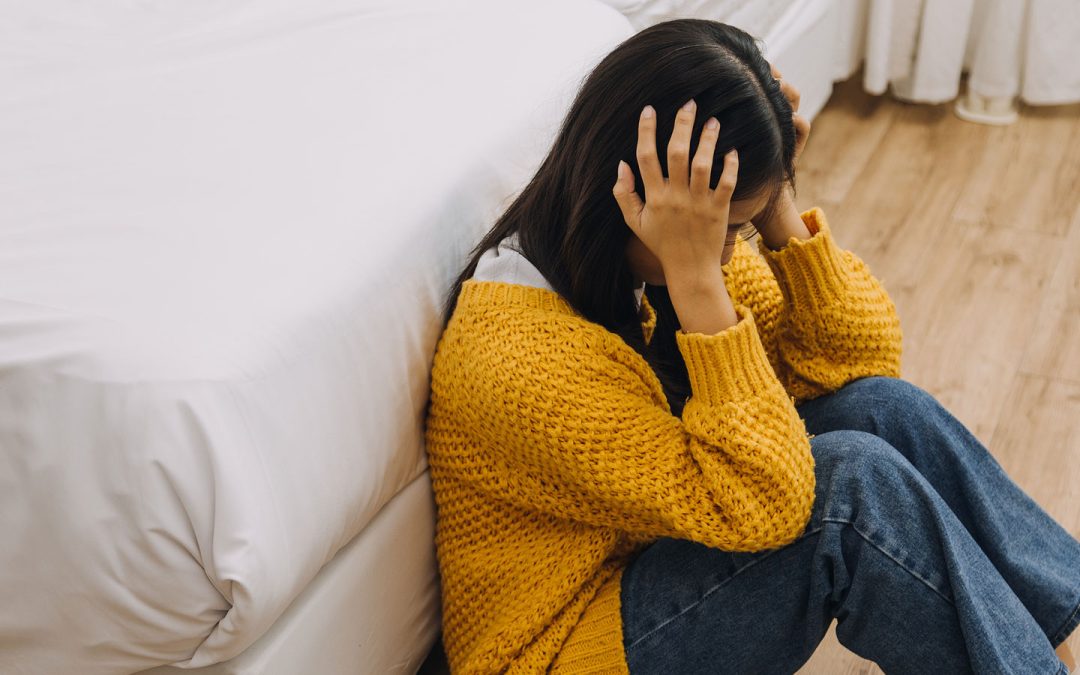
Lifestyle Changes to Reduce Anxiety: Nutrition, Exercise, and Sleep
Lifestyle Changes to Reduce Anxiety: Nutrition, Exercise, and Sleep
Anxiety can often be overwhelming and hard to manage. But, there are lifestyle changes that you can make that are proven to help reduce your anxiety symptoms and lead to a much healthier life overall.
If you’re looking for an easy way to start managing your feelings of anxiousness, focusing on nutrition, exercise, and sleep is the perfect place to begin!
In this blog post we’ll cover how each of these three areas is connected with anxiety relief so that you can start leading a happier life right away.

Nutrition
The food we consume plays a crucial role in our overall well-being, including our mental health. Research suggests that certain nutrients can have a significant impact on anxiety levels.
Omega-3 fatty acids found in fatty fish, flaxseeds, and walnuts, for example, have been linked to reduced anxiety symptoms. Similarly, foods rich in magnesium, such as spinach, almonds, and avocados, may help regulate stress and anxiety.
Additionally, incorporating complex carbohydrates like whole grains and legumes into your diet can promote the production of serotonin, a neurotransmitter that helps regulate mood. By focusing on a balanced diet that includes anxiety-fighting nutrients, you can support your mental well-being and reduce anxiety symptoms.

Exercise
Engaging in regular exercise has been shown to have numerous benefits for reducing anxiety and improving overall mental well-being. Physical activity stimulates the release of endorphins, which are natural mood-boosting chemicals in the brain.
These endorphins help alleviate stress, reduce anxiety symptoms, and enhance feelings of well-being. Exercise also acts as a distraction from anxious thoughts and promotes a sense of accomplishment and self-confidence.
Whether it’s cardio exercises, strength training, yoga, or simply going for a walk, finding an exercise routine that suits your preferences can significantly contribute to anxiety relief.
By incorporating exercise into your lifestyle, you can harness its positive effects on both your physical and mental health.

Sleep
Quality sleep is crucial for maintaining optimal mental health, and the relationship between sleep and anxiety is bidirectional. Anxiety can disrupt sleep patterns, making it challenging to fall asleep or stay asleep throughout the night.
Conversely, insufficient or poor-quality sleep can exacerbate anxiety symptoms, leading to increased stress and a heightened sense of worry. To break this cycle, it’s important to prioritize healthy sleep habits and establish a relaxing bedtime routine.
Adequate restful sleep can help restore your body and mind, reduce anxiety levels, and enhance overall well-being. By adopting good sleep hygiene practices and addressing any underlying sleep issues, you can improve the quality of your sleep and effectively manage anxiety.
Help With Lifestyle Changes To Reduce Anxiety
If you’re facing challenges with managing anxiety through nutrition, exercise, and sleep, we invite you to explore our website. We provide valuable resources, tips, and insights on how to make lifestyle changes that can effectively reduce anxiety levels.
Discover expert advice on incorporating anxiety-fighting foods into your diet, finding the right exercise routine to alleviate stress, and establishing healthy sleep habits for optimal mental well-being.
Our website aims to empower you with practical strategies and information to support your journey towards anxiety relief.
Visit AE Physiotherapy at https://aepsychotherapy.com/ today to take a step towards a healthier and more balanced life.







